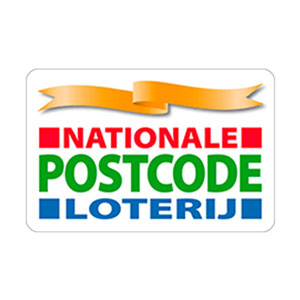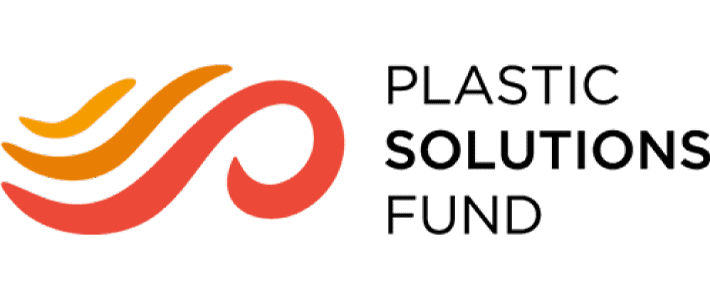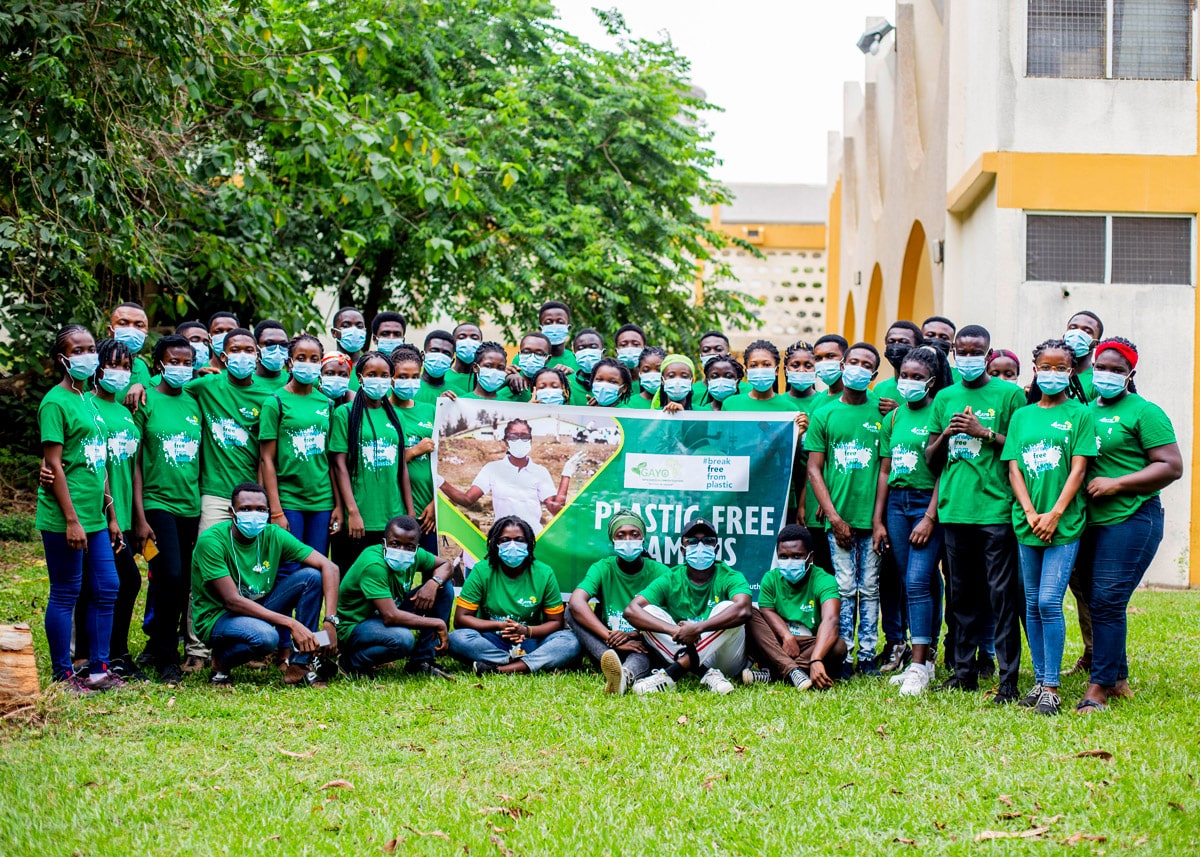The ravages of climate change are increasingly becoming apparent which calls us, individuals, to rise to take action against these impacts and work towards a sustainable environment. In the past few years, there has been a growing movement among young people to address climate change on college and university campuses. The journey towards plastic-free and zero-waste campuses campaign initiatives in Ghana turned out to be a popular movement among the youth-based members of GAYO Eco-Club Campus Chapters (GECCC) with massive engagement for climate actions since 2020 within 8 university institutions. GECCC through its activities is engaging the youth to reach out and provide solutions to environmental sustainability issues through youth empowerment, public education, community action, awareness creation and ecopreneurship programs.
One effective way to drive this change has been through the use of waste and brand audits, which allow our members to assess the highest brand polluters and students' behaviour on consumption and waste disposal practices in their schools. In the past few years, there has been a growing recognition of the negative impact of plastic in institutions. Yet, institutional solid waste has not received enough attention in Ghana. As a result, our members have become advocates for reducing plastic consumption and promoting plastic-free campuses. Post activities of this brand audit activities included developing brand audit reports and making recommendations for improvement on campuses.
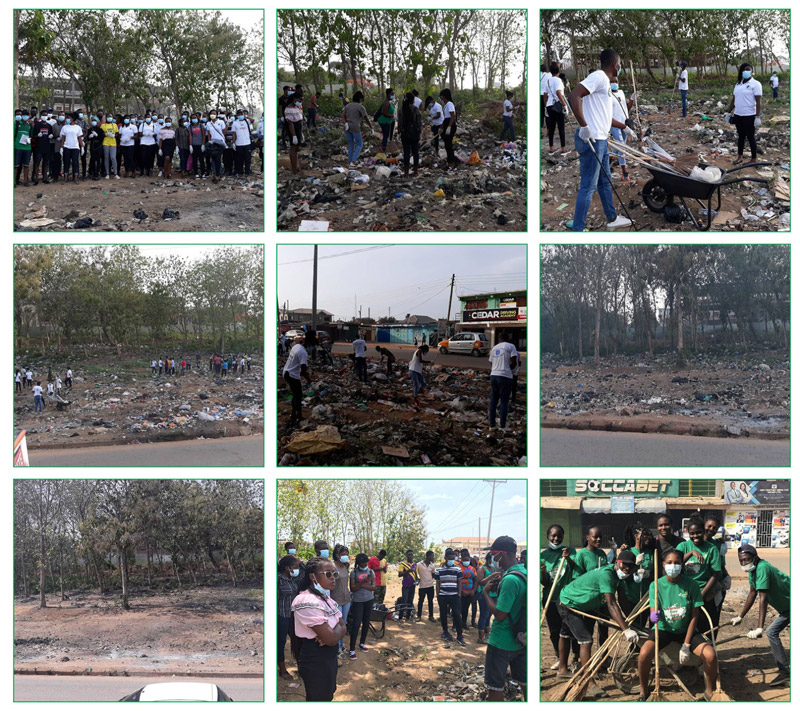
Photo credit: GAYO Eco-Club Campus Chapters (GECCC)
2022 marked one of our major brand audits which were organized at 6 different locations with the highest-ever youth participation in brand audit in Ghana.
Through our workshop sessions, the youth learn about the importance of making conscious consumer choices and the impact they have on the environment with a better understanding of the issue of single-use plastic pollution. The brand audit workshops serve as a means for young people to become equipped with the necessary tools and knowledge to take meaningful action in their personal and professional lives.
The results of our clean-ups and brand audit are also used to inform purchasing decisions and also educate vendors and students, and the wider campus community on waste reduction and environmental sustainability. In addition to brand audits, many youth-led initiatives on campuses are now focusing on reducing plastic waste in other ways including campaigning for the use of reusable water bottles, coffee cups, and reusable tote bags and rejecting single-use plastics, as well as promoting the use of compostable and biodegradable products (examples include paper bags).
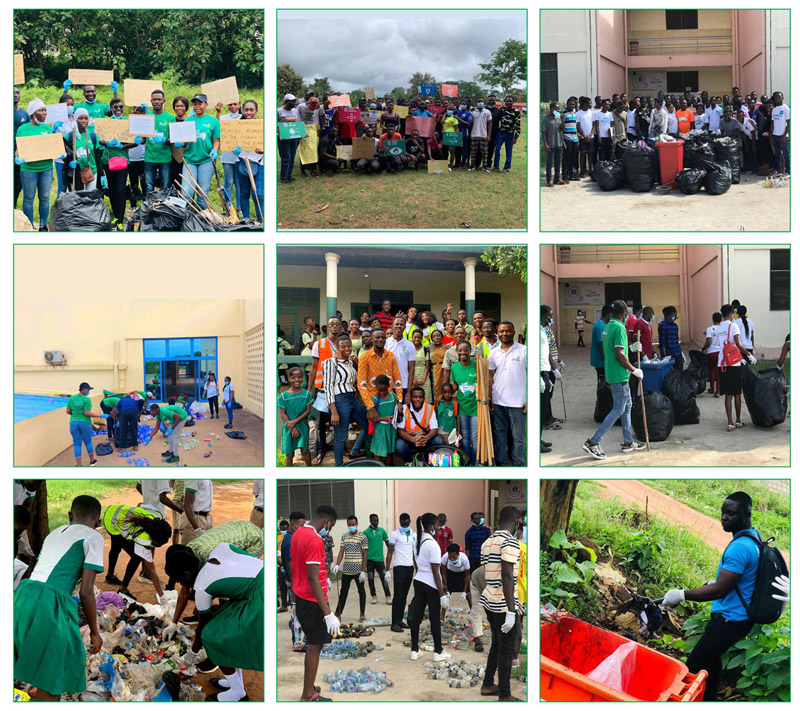
Photo credit: GAYO Eco-Club Campus Chapters (GECCC)
Unbranded polythene bags, Voltic, Verna, Bel Acqua, Coca-Cola, Sachet water, Nestle Ghana, Unilever, and Fan milk Ghana products have always been the top polluters in our brand audits. It is becoming increasingly important for educational institutions and industries to take steps to reduce their reliance on single-use plastics and to promote environmental sustainability on campus and in the country at large.
Involving youth in this movement can be particularly impactful, as young people are often interested in making a difference and can be influential in promoting change within their communities. By engaging students and other young people in efforts to reduce plastic use and promote environmental sustainability, educational institutions can help to raise awareness and provide support for tackling these issues.
Overall, the impact of our efforts towards plastic-free and zero-waste campuses has been incremental. We count on the active participation and commitment of youth, students, faculty, administrators and the wider campus community to advance our efforts for a far more significant impact. While there is still much work to be done, the efforts of these individuals are helping to create a more sustainable future for us all.
Author’s Biography
Nana Minta Asiedu Ampadu-Minta is an environmental activist, youth advocate and the Education and Eco-Clubs Coordinator at GAYO. He is a BFFFP Youth Ambassador.
To keep updated about the plastic-free and zero waste campuses campaigns in Ghana, check GAYO’s website and follow GAYO Eco-Club Campus Chapters on Instagram.
Young people aged from 15 to 24 represent 16% percent of global population, and are dealing with a plastics crisis that they did not create. To learn more about how the youth are taking action towards lasting solutions to the plastic pollution crisis, check the BFFP Youth page.
Break Free From Plastic Youth and BFFP Plastic-free Campuses is supported by:
